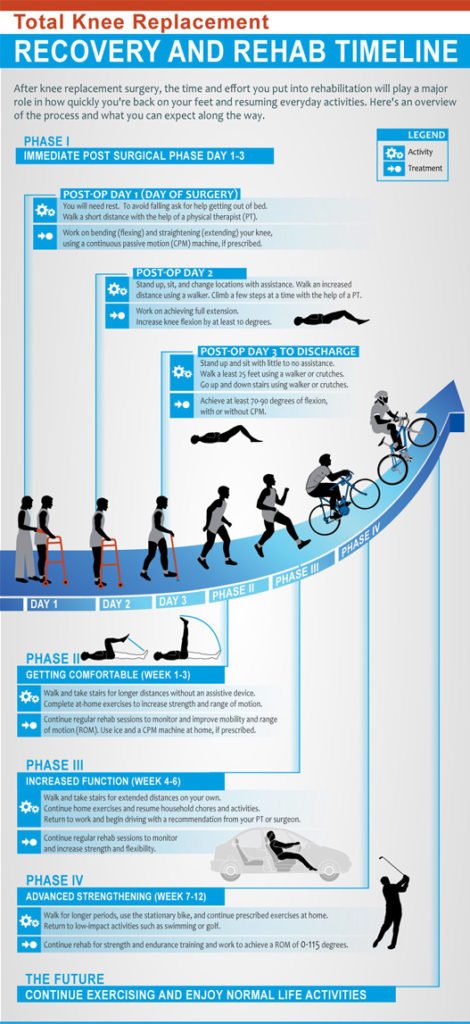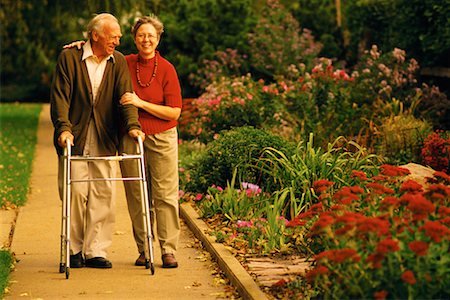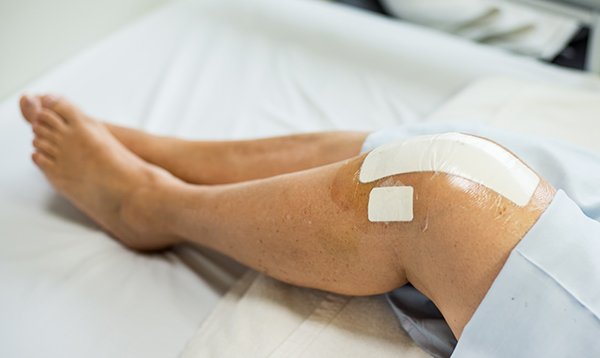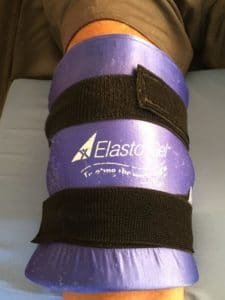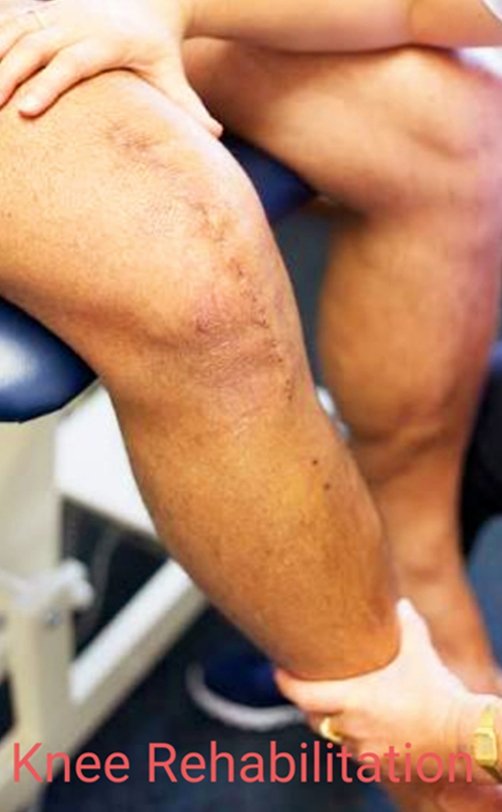What to expect after Total Knee Replacement
- Written by:
- Dr. Ankur Saurav
- Orthopedics Surgeon,
- Fellowship in Joint Replacement(Germany)
- Fellowship in Sports medicine (ISAKOS)
In my previous article I tried to inform you on "WHEN SHOULD I HAVE MY KNEE REPLACED".
THE MORE IGNORANT WE STAY THE MORE IS THE ANXIETY WE FACE.
In this article I will again address a very common query and anxiety in my patient that what is the timeline of recovery after my knee replacement surgery.
Common questions asked by patients regarding recovery period is:
- When will I start walking?
- When will I be going to washroom independently?
- How long the pain will last?
- How gradually I should increase my day to day activities?
- When will I be able to resume my office?
- When to start driving?
- How long my knee swelling will be their?
Many such questions are asked by patients regarding their recovery.
So lets know, what you are going to experience in different timeline from your knee replacement surgery.
- Recovery from Knee replacement surgery may be full of challenges along the way. I find that if the Patient knows what to expect after surgery, generally have excellent perspective on their progress and they feel less anxious during their recovery period.
- One should always keep in mind that each body behave in unique manner in healing and thus two individuals can't be compared. But here i will give you the general guidelines about your recovery after your Knee replacement surgery.
3. KNEE REPLACEMENT SUPPORT SYSTEM:
- It is extremely helpful and wise to have strong support network of family and friends during this vital period of recovery. I encourages my patients to collaborate with us for education and encouragement during your recovery process.
- Feel free to communicate with me on Twitter, Instagram, Facebook, WhatsApp or on Mail ne about your queries and issues in post operative period.
1. Period Early after Surgery:
- The first couple of days after surgery is usually the most uncomfortable period. But with the advancement in the the Pain Management System Modalities, patients can expect to move out of bed and walk with support and braces as early as on the day of surgery.
- After you get discharge from the hospital, always keep in mind to stay ahead of pain by:
- Applying regular ice,
- Having adequate rest,
- Elevation of knee,
- Judicious use of painkillers.
- It is not uncommon in some patient to continue taking mild pain killers for 4 to 8 weeks.
4. Your knee will be typically be swollen immediately after surgery and this is quite a common issue to all the patients. The best thing which you can do to reduce the discomfort is to apply ICE and ELEVATE the knee.
5. I recommend my patients a Larger Ice Packs that can drape over the knee. Readymade ice packs are readily available but those who don't find adequate size, for them it is extremely easy to make your own Ice packs.
Lets learn how to make your own ice packs.
- Take one plastic bag of large size with ziplock. You may consider to double up the bag to avoid any leakage.
- Add 50ml of Hand Rub(70% Isopropyl alcohol) in the bag.
- Add 150ml of Water to it.
- Evacuate all the air from the bag before freezing.
- Place the bag in the freezer for 5 to 6 hours initially.
The advantage of this pack is that it can be easily moulded around your knees.Ice packs should be used frequently while your knee is swollen.
2. Recovery during first 6 weeks:
Patient ambulating early after surgery
Common issues in first 6 weeks:
- Trouble in having a rest full night sleep due to knee swelling, pain and other discomfort.
#Solution:A good night sleep returns over time. Check with your Physian for any pills needed for sound sleep. Apply braces during sleep to avoid abnormal positioning of knee during sleep and also avoid flexion contractures of knee.
#Traveling during the first 3 weeks after surgery should be restricted
- Your stitches/ Staplers from your knee will be removed between 15 to 20 days from your surgery.
- By the end of 3rd week the significant pain will fade. Deep aching becomes more prominent rather than sharp pain.
- You will be doing now much of the Physiotherapy sessions independently and will require less assistance from your therapist.
- During this period, the knee can still feel quite tight at times. Some days will be better than other
- During the first 6 weeks you will need Ice, rest and elevation.
- This is the period when a critical balance is required to be established between increase in activity and rest, ice and elevation.
- It is not unusual for some patients to feel a transient sense of depression during this period. This will definitely get better once your pain subsides, your knee functionality gets better and your sleep patterns begins to return to normal.
3. Recovery from 6 to 12 weeks:
" Moons and years passes by and are gone forever but a beautiful moment shimmers through life a ray of light".

- Now is the time when most of the patient start sensing the positive end result.
- By this time it is common for patients to have noticed that their knee may Click or Clunk. This sound or sense of instability is caused by some minor motion between the thigh bone prosthesis and the plastic component attached to the shin bone. This is usually normal and may become less noticeable as the patient develop better strength in the knee. This strength is important to develop as this ensures smooth Arc of motion of your knee, thus patient should have strict compliance to their physiotherapy sessions.
- Now your formalized physiotherapy sessions are about to end with you having more confidence to move outdoors.
- Patients who have " light duty" job typically return to work between 6 to 12 weeks
- For some patients, it may take up to 12 weeks to feel as if they are " better than before surgery ".
- At the end of 12 weeks after surgery there typically will still be some knee discomfort and minor swelling.
4. Recovery after 12 weeks:
" The greener side of the world is awaiting you".
- After 3 months, many of your routine activities become easier, you typically will feel much more functional than you have in a long time.
- After 6 months most of the healing is completed. Occasional aching or soreness is not uncommon.
- Between 4 to 6 months many of the patients are back on the driving seat of their car and fully ready to handle their offices.
- It may take 9 months to 1 year before the sense of stiffness fully resolves.
- If you still have significant pain, soreness or swelling, then it should be evaluated by your Knee surgeon.
- Physiotherapy lesson should be your best friend by now as you need to have a good complinance of it along the way.
# Friends feel free to put your queries on my emails, Twitter or WhatsApp.
